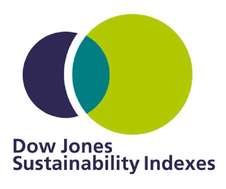 Firms are under continued pressure to certify themselves as virtuous, good, effective, high quality, and any number of other positive things. Often they display the certification prominently. For example, if you type “General Motors ISO” or “General Electric ISO” into google, it will fill in “9001”, because they both display prominently on the web that they are ISO 9001 certified. There is an interesting exception to this. Many firms are certified as environmentally responsible through the Dow Jones Sustainability Index, but four out of ten firms do not display this certification. Why boast about their quality but not their environmentalism? Chad Carlos and Ben Lewis have a new article in Administrative Science Quarterly that looks at the reasons for this silence, and they find that it is a strategic silence. Firms want to be left alone by the public when it comes to environmentalism. They do so by getting certified, to avoid criticism as being non-environmental, and by not promoting their certification, to avoid being singled out as being hypocritical about environmentalism. This lets firms be less visible for people who care about the environment, whereas they want to be visible to people who care about quality. How do we know this is the purpose of staying silent? Obviously firms are not going to tell anyone that they are trying to avoid sustainability as a real commitment, but we can still see it based on how they behave. The main problem for firms is to lose their reputation through being called out as less sustainable than they claim to be, or less sustainable than they should be, especially if they are also exposed as hypocrites through declaring their certification. So, we should expect firms that have good reputations and are revealed as less environmental to also be more secretive about the sustainability certification. That is exactly what Carlos and Lewis found. Shareholders can file resolutions against firm actions that go against sustainability. If they did, and the firm had a good environmental reputation to begin with, the firm would be especially likely to be strategically silent about the certification. Stakeholders such as social movements can target the firms through boycotts, demonstrations, and other protest actions. If they did, and the firm had a good environmental reputation to begin with, the firm would be strategically silent about the certification. From how the firms acted is was clear that those who were already seen as good in the environment were very careful not to have this reputation torn down by any charges of being hypocritical. That meant keeping the sustainability certification out of sight, to avoid attracting attention. The evidence is interesting because certification is usually an initiative to do three things: make firms follow a standard, make firms influence others to follow the standard, and make firms compete to beat the standard. The firms that were secret environmentalists broke this chain by only doing the first of these three steps. Through their strategic silence they did not influence other firms, and they did not compete to be the most environmental either. Many try to influence firms, for many purposes, but it is important to keep in mind that firms also want control over what they do, and they have a wide range of actions to escape the control of others. Carlos, W. Chad and Lewis, Ben W. 2017. Strategic Silence: Withholding Certification Status as a Hypocrisy Avoidance Tactic. Administrative Science Quarterly, forthcoming. Comments are closed.
|
Blog's objectiveThis blog is devoted to discussions of how events in the news illustrate organizational research and can be explained by organizational theory. It is only updated when I have time to spare. Archives
May 2024
Categories |
 RSS Feed
RSS Feed